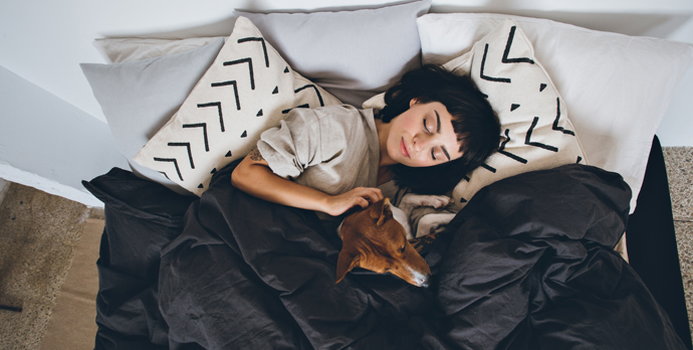We’ve all been tempted to have a little sleep on the sofa in the middle of the afternoon, or we’ve thought about putting our heads on the desk in the office and drifting into dreamland. Many people think that naps are a sign of laziness, but considering the long hours most of us work, it’s not surprising that so many of us are sleep deprived. Are naps the answer we’ve been looking for to help us beat the midday slump and also improve daily function?
There are both pros and cons when it comes to napping. The obvious cons would be that napping could disrupt your sleeping cycle. According to Mayo Clinic, although short naps should have little effect, napping could result in nighttime sleep problems, especially for those who suffer from insomnia. Naps could cause sleep inertia, resulting in an individual waking up feeling groggy and disoriented.
Napping during the day can also result in bad sleeping habits. Dr. Ralph Downey III of the Sleep Disorders Center told Health; “Even just a little bit of a power nap reduces your nighttime sleep drive. The nap becomes nothing more than another episode of fragmented sleep."
That said, there are some benefits to napping too. A sleep specialist discussed these pros with Huffington Post, revealing that naps could improve daily function. The specialist notes that short naps during the day have been found to reduce the incidents of workplace mistakes and can improve alertness, concentration, attention, and performance. Often, after a nap, an individual will also feel in better spirits, thus a nap has mood-boosting effects and can help to manage stress.
There are some important things to remember when napping though. The length of the nap should not exceed 20 minutes, and MayoClinic suggests that naps last for around 10 to 20 minutes. The reason for this is that the longer an individual naps, the more likely they are to wake up feeling groggy. This is because longer naps result in a deeper stage of sleep.
Naps should also happen earlier in the day. MayoClinic says naps should happen before 3 p.m., while Huffington Post suggests the best time for a nap is before 2 p.m. Their reasons are the same; sleeping later will affect your nighttime rest.
Most people are already aware that sleeping in a cool, dark room can improve the quality of sleep, and the same restful conditions should apply to your naps. According to Huffington Post, if you want to nap, try to do so in your bed, or find a place where you are able to recline. Use an eye mask to block the light coming into the room if it is not dark enough.
Lastly, it’s important to realize that fatigue could be a sign of an underlying medical condition, mental disorder, or the result of prescription medication. If you find yourself suffering from extreme daytime fatigue, it is recommended you contact a doctor.
[Image via Shutterstock]



